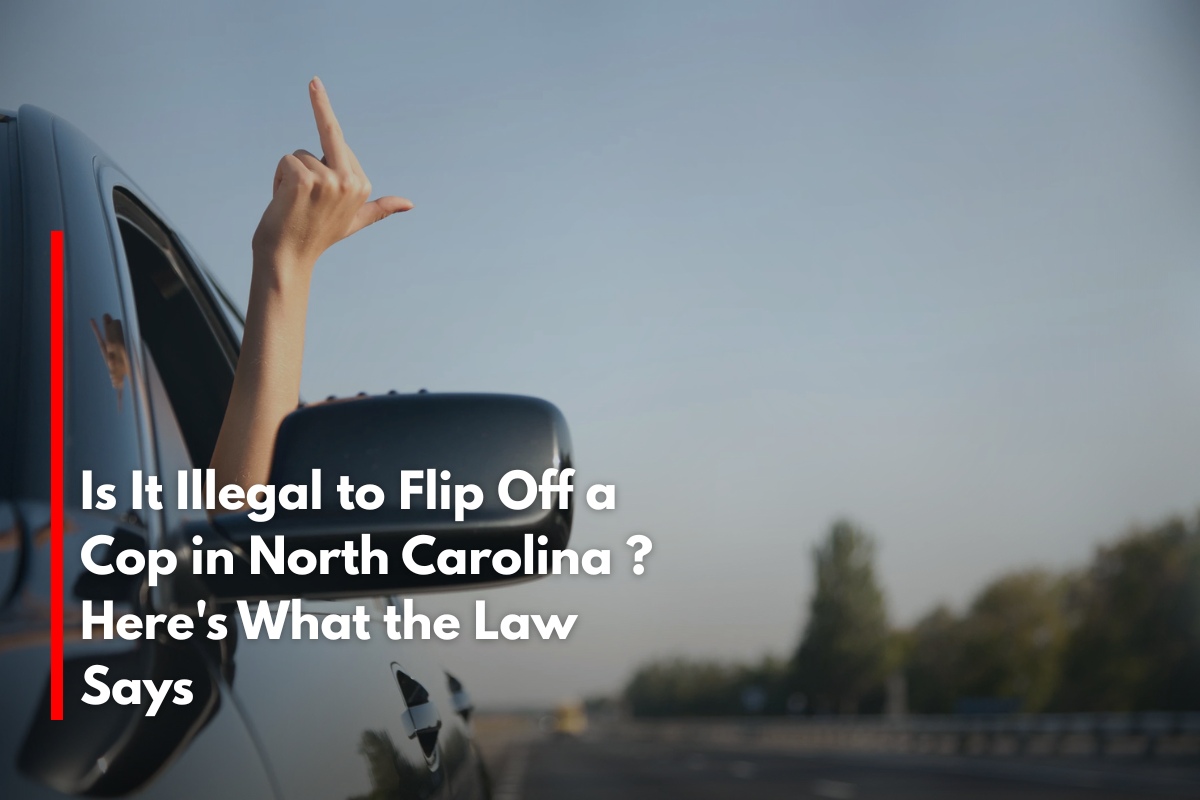Flipping off a police officer in North Carolina—the gesture commonly known as “giving the middle finger”—sparks many questions about legality and free speech. While the gesture is widely recognized as offensive, its legality involves balancing constitutional protections with state law enforcement concerns.
First Amendment Protection for Offensive Gestures
Under the First Amendment of the U.S. Constitution, expressive conduct such as flipping off a police officer is generally protected speech. This means the act alone does not constitute a crime, and police officers cannot lawfully arrest or charge someone solely for making this obscene gesture.
In a 2020 case known as State v. Ellis, the North Carolina Supreme Court ruled that flipping off an officer is protected expressive conduct and does not justify a traffic stop or criminal charges for disorderly conduct. The court emphasized that offensive gestures, while disrespectful, fall under free speech rights unless they provoke violence or public disorder.
When Might Flipping Off a Cop Lead to Legal Trouble?
Although the gesture itself is protected, legal issues arise if the gesture:
Is part of a larger disruptive or disorderly behavior.
Is intended to incite violence or causes an imminent breach of the peace (for example, if third parties are present who might react violently).
Is coupled with other illegal actions such as refusing to identify oneself during a police stop, which can result in charges like obstructing a law enforcement officer.
Notably, in the Ellis case, police initially stopped a vehicle because a passenger flipped off an officer, which the lower court deemed reasonable suspicion. However, the highest state court disagreed, clarifying that the gesture alone is not enough to justify a stop.
Police Stops, Reasonable Suspicion, and Community Caretaking
North Carolina courts have wrestled with how gestures interact with police powers to stop vehicles. While flipping off an officer may be offensive, it does not necessarily amount to criminal conduct or provide legal grounds for a stop unless accompanied by other suspicious behavior.
Sometimes, officers claim the community caretaking exception or public safety concerns justify a stop despite the gesture, but these arguments face high scrutiny given constitutional protections.
Practical Advice: Is It Worth It?
Criminal defense lawyers often advise against flipping off the police despite its legality, as it can draw unwanted attention or escalate situations unnecessarily. While protected speech, it risks confrontation or minor charges if additional laws are invoked, such as resisting or disorderly conduct.
Summary
Flipping off a North Carolina police officer is protected speech under the First Amendment and by state supreme court rulings.
The gesture alone does not justify a traffic stop or criminal charges such as disorderly conduct.
Legal trouble may arise if combined with other unlawful acts or if it provokes violence or disrupts public peace.
Police must have reasonable suspicion of criminal activity beyond the gesture to stop or detain someone.
While legal, flipping off police is generally not recommended due to practical risks.
Flipping off a cop in North Carolina is not illegal per se, but context matters. Understanding your rights can help protect your free speech while avoiding unnecessary escalation during police encounters.
Sources
(https://noblesyanezlaw.com/more-on-flipping-off-the-cops/)
(https://nccriminallaw.sog.unc.edu/shooting-an-officer-the-bird/)
(https://reason.com/2020/05/01/north-carolina-supreme-court-flipping-off-cop-did-not-justify-traffic-stop/)
(https://firstamendment.mtsu.edu/post/flipping-off-police-officer-was-reason-enough-to-stop-suv-n-c-appeals-court-rules/)
(https://thesnaponline.com/2019/08/07/court-rules-in-favor-of-trooper-who-charged-man-over-middle-finger/)











